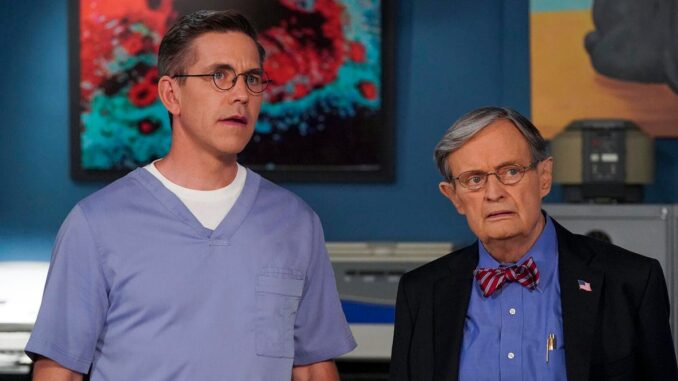
The quiet hum of the NCIS bullpen, usually a crucible of sharp banter and urgent keyboard clatter, felt strangely muted. An unseen drape had fallen, muffling the usual vibrant energy. Dr. Donald "Ducky" Mallard, the resident fount of arcane knowledge, sartorial elegance, and profound empathy, had passed. And with his gentle, dignified exit, NCIS, both the fictional team and the devoted viewership, was called upon to render a final, heartfelt goodbye.
Ducky wasn't just a medical examiner; he was the team's anchor, their historian, their quirky conscience wrapped in mothballed tweed. His mind, a labyrinth of arcane facts and historical footnotes, could connect a seemingly trivial detail to a geopolitical upheaval or a forgotten psychological trauma. He was the one who listened, truly listened, to the victims and, more importantly, to the living. His presence was a comforting, anachronistic balm in the high-octane world of federal investigations. To imagine NCIS without Ducky was to picture a library without its most beloved, dog-eared tome – still functional, perhaps, but profoundly diminished.
The episode that chronicled Ducky’s final farewell was more than just a plot device; it was a masterclass in illustrative storytelling, a tender elegy woven into the fabric of a procedural drama. It didn't lean on grand, operatic pronouncements of grief. Instead, it showed us loss through a thousand quiet gestures. The empty chair in the morgue, a silent sentinel. The hushed tones of Vance, usually so commanding. Jimmy Palmer’s quivering lip, a son losing his surrogate father, striving valiantly to uphold Ducky’s legacy even as his own heart shattered.
Perhaps the most poignant illustration of Ducky’s enduring legacy was the way his wisdom continued to guide them. The team found themselves invoking "Ducky facts" – those seemingly random historical anecdotes or psychological observations – to crack a case, proving that even in his physical absence, his spirit and intellect remained an invaluable part of their collective mind. It was a beautiful testament to how the truly great among us continue to inform and inspire long after they are gone, their voices echoing in the minds of those they touched.
Beyond the fictional narrative, this goodbye carried a profound weight for millions of viewers because it mirrored a real-life loss: the passing of the beloved actor David McCallum. For decades, McCallum had poured his intellect, charm, and understated grace into the character of Ducky, blurring the lines between actor and role. The show’s farewell was, therefore, not just for a character, but for a cherished presence, a comforting constant in the ever-shifting landscape of television. The shared tears of the NCIS team resonated with the genuine sorrow felt by an audience who had invited Ducky, and by extension, David McCallum, into their homes for over two decades.
The final goodbye to Dr. Mallard was an illustrative essay on grief, memory, and the enduring power of family, both by blood and by bond. It taught us that farewells, while painful, are also opportunities to celebrate a life well-lived, a legacy richly earned. Ducky’s presence may have faded from the screen, but the gentle crinkle of his eyes, the knowing nod, and the sage advice remain etched in the collective memory of the NCIS team and its loyal following. He didn't just pass away; he passed on, leaving behind a profound stillness, but also an enduring warmth – a testament to a character, and an actor, who will forever be fondly remembered.